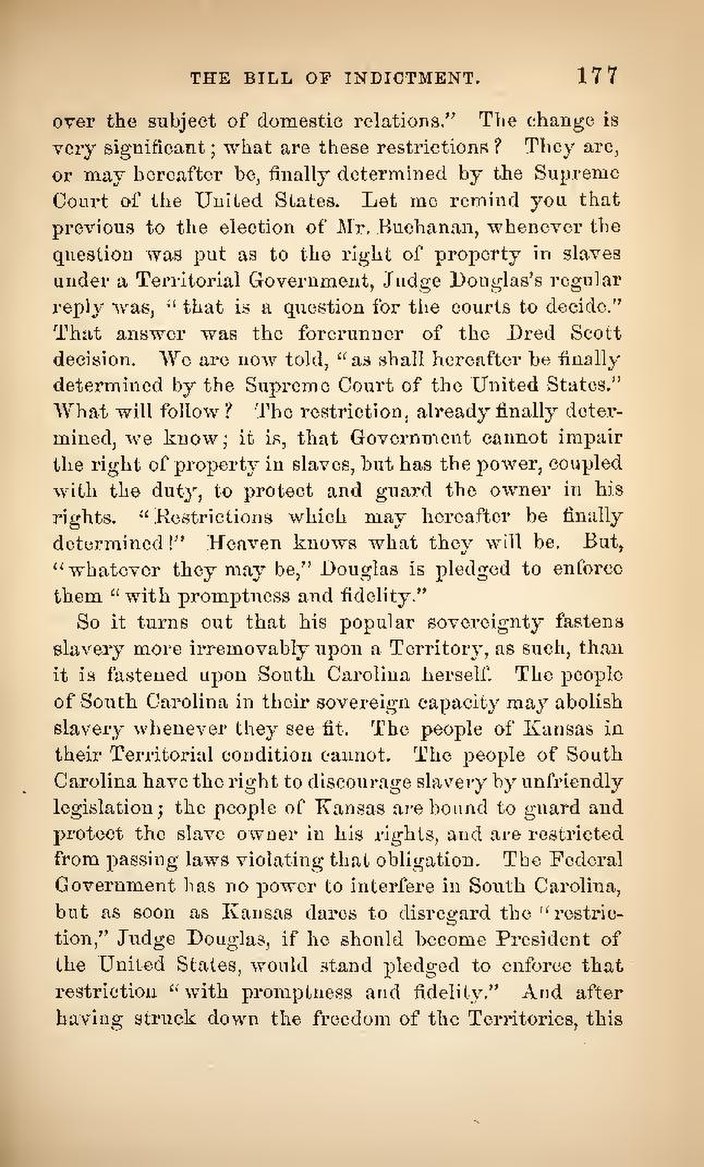over the subject of domestic relations.” The change is very significant; what are these restrictions? They are, or may hereafter be, finally determined by the Supreme Court of the United States. Let me remind you that previous to the election of Mr. Buchanan, whenever the question was put as to the right of property in slaves under a Territorial Government, Judge Douglas's regular reply was, “that is a question for the courts to decide.” That answer was the forerunner of the Dred Scott decision. We are now told, “as shall hereafter be finally determined by the Supreme Court of the United States.” What will follow? The restriction, already finally determined, we know; it is, that Government cannot impair the right of property in slaves, but has the power, coupled with the duty, to protect and guard the owner in his rights. “Restrictions which may hereafter be finally determined!” Heaven knows what they will be. But, “whatever they may be,” Douglas is pledged to enforce them “with promptness and fidelity.”
So it turns out that his popular sovereignty fastens slavery more irremovably upon a Territory, as such, than it is fastened upon South Carolina herself. The people of South Carolina in their sovereign capacity may abolish slavery whenever they see fit. The people of Kansas in their Territorial condition cannot. The people of South Carolina have the right to discourage slavery by unfriendly legislation; the people of Kansas are bound to guard and protect the slave owner in his rights, and are restricted from passing laws violating that obligation. The Federal Government has no power to interfere in South Carolina, but as soon as Kansas dares to disregard the “restriction,” Judge Douglas, if he should become President of the United States, would stand pledged to enforce that restriction “with promptness and fidelity.” And after having struck down the freedom of the Territories, this
